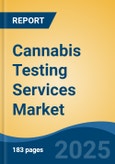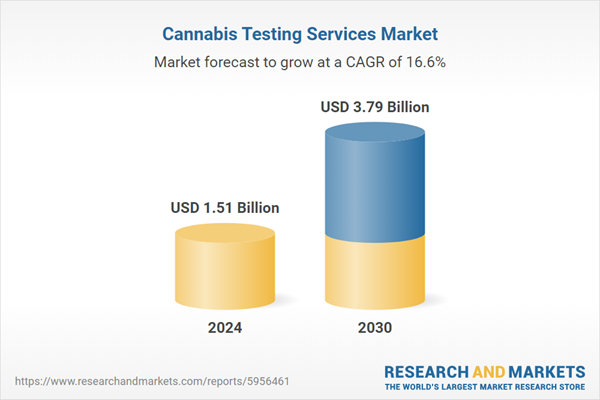Cannabis Drug Manufacturers is the fastest growing segment, North America is the largest regional market
Speak directly to the analyst to clarify any post sales queries you may have.
10% Free customizationThis report comes with 10% free customization, enabling you to add data that meets your specific business needs.
Key Market Drivers
The expanding legalization of medical and recreational cannabis significantly drives the Global Cannabis Testing Services Market, establishing formal distribution channels that necessitate rigorous quality assurance. As more regions transition to regulated markets, the demand for comprehensive analytical services to verify potency, purity, and safety increases for a burgeoning array of cannabis products. This shift generates a sustained need for testing infrastructure. According to the Marijuana Policy Project, July 2025, in "Cannabis Market Update: H1 2025 in Review" by Investing News Network, states collected US$4.4 billion in tax revenue from legal adult-use cannabis sales in 2024 alone, directly illustrating this formalized market growth.Key Market Challenges
The persistent lack of harmonized regulatory standards and testing methodologies across different jurisdictions represents a significant impediment to the growth of the Global Cannabis Testing Services Market. This fragmentation directly complicates compliance for multi-state and international operators, as they must navigate a patchwork of diverse requirements for product safety and quality assurance. This situation creates substantial operational complexities and elevated costs for testing laboratories, which must continuously adapt their equipment, protocols, and accreditations to meet varied legal mandates.Key Market Trends
The increasing adoption of automation and high-throughput technologies is transforming cannabis testing laboratories by enabling them to process larger volumes of samples with enhanced speed and precision. This technological integration, encompassing robotic sample handling and advanced analytical platforms, reduces human error and shortens turnaround times, which are crucial for market competitiveness and meeting stringent deadlines. For instance, according to Food Engineering Magazine, October 2025, in its "The State of Food Manufacturing in 2025" survey, 32% of surveyed manufacturing professionals planned to purchase lab testing or analysis equipment or software, demonstrating a broader industry push toward automation in analytical processes. This shift allows testing services to scale operations effectively in response to increasing product diversification and market growth.Key Market Players Profiled:
- Saskatchewan Research Council/The
- Eurofins Scientific Inc
- PHARMLABS LLC
- Steep Hill Labs Inc
- CW Analytics Inc
- Greenleaf Corp
- Praxis Labs
- SGS Canada Inc
Report Scope:
In this report, the Global Cannabis Testing Services Market has been segmented into the following categories:By Service Type:
- Potency Testing
- Terpene Profiling
- Heavy Metal Testing
- Pesticide Screening
- Microscopy Testing
- Residual Solvent Screening
- Others
By End Use:
- Cannabis Drug Manufacturers
- Cannabis Cultivators/Growers
- Others
By Region:
- North America
- Europe
- Asia-Pacific
- South America
- Middle East & Africa
Competitive Landscape
Company Profiles: Detailed analysis of the major companies present in the Global Cannabis Testing Services Market .Available Customizations:
With the given market data, the publisher offers customizations according to a company's specific needs. The following customization options are available for the report.Company Information
- Detailed analysis and profiling of additional market players (up to five).
This product will be delivered within 1-3 business days.
Table of Contents
Companies Mentioned
The companies profiled in this Cannabis Testing Services market report include:- Saskatchewan Research Council/The
- Eurofins Scientific Inc
- PHARMLABS LLC
- Steep Hill Labs Inc
- CW Analytics Inc
- Greenleaf Corp
- Praxis Labs
- SGS Canada Inc
Table Information
| Report Attribute | Details |
|---|---|
| No. of Pages | 183 |
| Published | November 2025 |
| Forecast Period | 2024 - 2030 |
| Estimated Market Value ( USD | $ 1.51 Billion |
| Forecasted Market Value ( USD | $ 3.79 Billion |
| Compound Annual Growth Rate | 16.5% |
| Regions Covered | Global |
| No. of Companies Mentioned | 9 |









